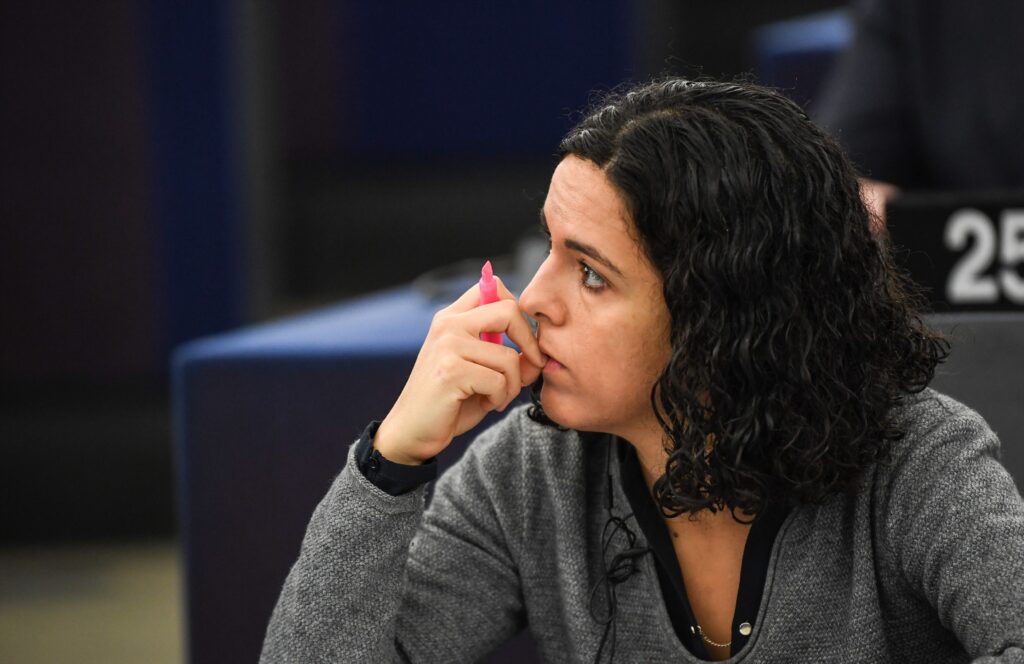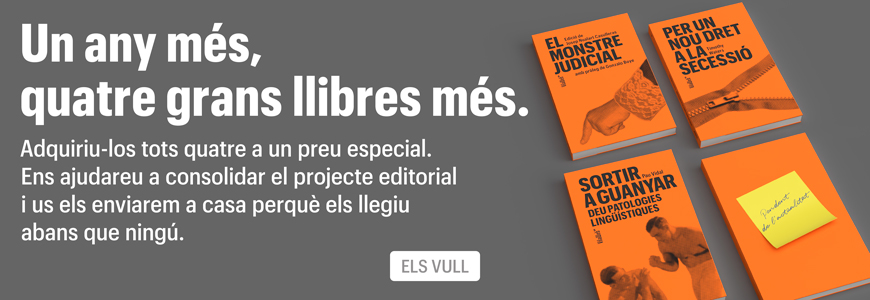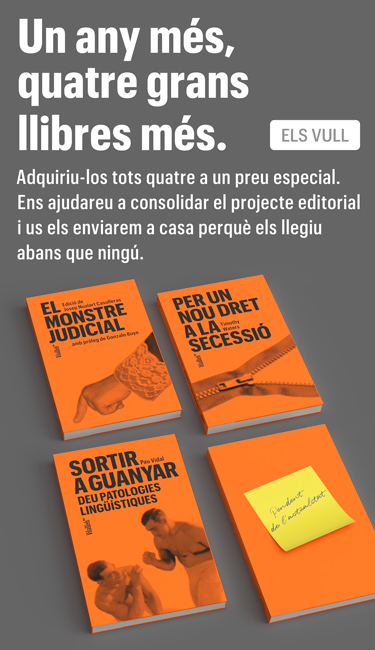28.02.2021 - 10:34
|
Actualització: 28.02.2021 - 11:34
Manon Aubry (1989) is a Member of the European Parliament for La France Insoumise and co-chair of the European United Left–Nordic Green Left parliamentary group. Aubry was a member of the committee which has just recommended to the plenary of the European parliament to lift Carles Puigdemont, Clara Ponsatí and Toni Comín’s parliamentary immunity. If the plenary accepts the committee’s recommendation, all three will have to appear before the Belgian and Scottish courts to face a hitherto suspended European arrest warrant. Manon Aubry does not share the committee’s opinion and she believes that the three Catalan MEPs are the victims of political persecution for their ideas, and that the committee’s decision is neither independent nor is it based on legal arguments. In this telephone interview with VilaWeb, Aubry voices her concern as to the precedent that may established by this case. In her opinion, it will subsequently be possible to persecute MEPs for their political views, a development which she sees as a threat to democracy.
—How do you feel about the committee’s decision, which recommends lifting the immunity of the three Catalan MEPs?
—I think the decision is highly problematic. The question is not whether Catalonia should be independent or not. The question is whether people who have been democratically elected by hundreds of thousands of voters can be heard in parliament. I think the decision not to have them in parliament is clearly politically motivated. And if you look at the legal proceedings against the three of them, you can see that they were also initiated by the far right in Spain, against the findings of the United Nations and Amnesty International, which see the charges as potentially arbitrary. From the outset, Spain has tried to prevent them from becoming MEPs. It was a political decision from the very start. And I care that it sets a precedent. It would mean that we are unable to protect members of the European Parliament who have been democratically elected. Whether you agree with Puigdemont, Ponsatí or Comín or not, the fact is that they’ve been democratically elected. And the committee’s decision is wrong because it’s politically motivated rather than legally.
—Puigdemont, Ponsatí and Comín weren’t MEPs when the events in question took place.
—The issue here is that lawsuits are being filed against them for their political beliefs. They are being persecuted for their political views, because they support independence for Catalonia, and because they staged a referendum. Therefore, this whole case has to do with their political beliefs and their political decisions, which is why they ought to be protected, as that is precisely the role of a member of the European Parliament: holding a safe political position.
—There were many Spanish MEPs on the committee. Is that usual?
—Every group chooses who to assign. And overall, yes, there were many Spaniards. And that made the debate a very Spanish affair, rather than a European debate over whether or not to lift immunity. At certain points I certainly found myself out of place. In short, I think we can safely say that the committee didn’t make an independent decision.
—The chairman of the committee was a Ciudadanos MEP.
—That’s right. There are rules of confidentiality, which also affect the way the debate was conducted. I’m not allowed to say anything in this regard. I wish to respect the rules, knowing that other MEPs have failed to do so. And they’ve been criticized for doing so. However, I can tell you that I don’t really think the matter has been handled with the independence that would be required. However, I won’t point any fingers.
—The person who wrote the report is a member of the European far right. It’s shocking.
—Like I said, I won’t comment on specific individuals. I will say that a political decision has been made, and we ought to view it as such. And that is extremely dangerous.
—The report was leaked to the Spanish press.
—It’s a breach of the rules of confidentiality that I mentioned before. I was even more surprised when I saw that it had been leaked to the far right. I hope the leak is brought to the attention of the President of the European Parliament. And I hope they find out who is responsible. And that they pay the price. Because it’s a breach of the rules of the European Parliament.
—The committee has recommended waving the immunity of the three Catalan MEPs. How can we expect the parliament to vote? The same way?
—There was broad support for lifting their immunity in the committee. Therefore, I suspect that it’ll be a similar story in the plenary. I don’t know for sure, but it’s highly likely. And I deeply regret it. Which is why I call on my parliamentary colleagues to vote without basing it on their opinion of Catalonia or Spain. It’s not the issue. The question is whether we are on the side of democracy or not. And I know perfectly well which side I’m on: on the side of democracy. I think of the hundreds of thousands of Catalans who voted for their representatives. And now some people don’t want them to be able to represent them any longer. Or that their voice is heard. And here we find an example of double standards: we point to Orbán and other authoritarians in Hungary. However, by the same token we must defend democracy in Spain. It’s purely a question of democracy. Which is why I’m so concerned: if we don’t stand with democratically-elected MEPs now and let the national judicial systems persecute them, tomorrow it might be my turn. If my government isn’t happy with what I do, then it could be me. Or someone else. All of this is extremely dangerous because it means that any of us can be silenced for our political views. We’re facing a threat to democracy. A very serious threat.
—Will your parliamentary group vote the same as you?
—MEPs are free to vote as they like, but I’m convinced that the group will follow my recommendation, because no matter what we think about Catalonia or Spain, we’re all on the side of democracy. But unfortunately with only my group, it won’t be enough to reach a majority. Which is why I am calling on MEPs from other groups to think twice.
—The big question is what the socialists and conservatives will do.
—I think the vast majority will want to lift their immunity. But we’ll vote in secret in the plenary. So we won’t know how everyone has voted. This vote will be critical for democracy, and we won’t know who voted what. These are the rules, and we will respect them, but I think it’s a problem.
—Finally, how did you personally become aware of the Catalan situation?
—As a French citizen, I’ve heard about it since the start. I’m familiar with Catalonia and I have a fair idea of what’s happening there. I keep abreast of the news. But I’m not Spanish, nor do I need to have a point of view, or position, on independence. I’m simply trying to stand up for democracy.




